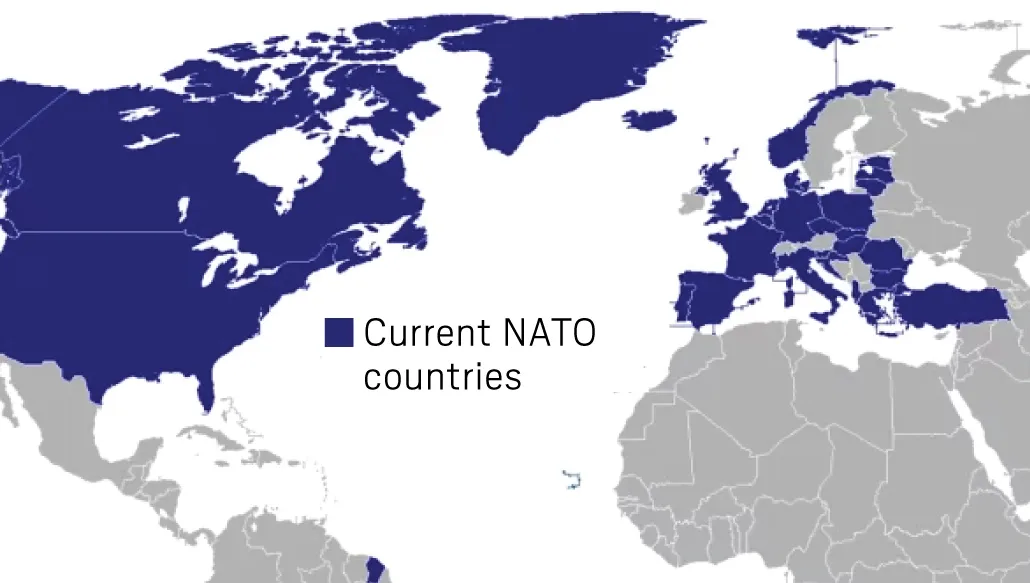Table of Contents
In yesterday’s post, I reflected on the possible future for the long-standing Australia-New Zealand alliance. From colonial times, both countries were regional siblings, notwithstanding the inevitable sibling rivalry. As both countries assumed nationhood, our partnership was almost immediately solidified with a proud history of shared military endeavour. That partnership is reflected in the name Anzac. Australians and New Zealanders have fought side by side everywhere from Gallipoli to Iraq.
Unfortunately, as I wrote yesterday, that partnership is being strained by the Ardern Labour government, possibly as it never has before. Australia is clearly expected to shoulder the bulk of the defence burden of our region – with increasingly fewer thanks from the incumbents in Wellington.
But New Zealand’s strategic apathy is not exactly new.
In 1949, a distinguished New Zealand soldier, Major General Sir Howard Kippenberger, warned:
It may be a good thing to continue doing nothing as at present and trust in the mercy of God to a people too selfish and lazy to help themselves. We can say, truly, that New Zealand cannot alone defend herself…so, perhaps, we had better leave it to others, or deny that there is any danger and get on with our amusements and the rapid erosion of our land. Or we can pull ourselves together and act as a grown up Nation.
Those words should still sting.
It’s not as if New Zealand is an utterly feckless nation unable to shoulder risk. Against such threats as natural disasters, New Zealand has done admirable work, with such initiatives as compulsory earthquake insurance and public alert systems (the latter recklessly misused by the Ardern government during the Wuhan pandemic).
Against human-caused risk, though, New Zealand has left itself almost helpless. Ardern may place faith in the “rules-based international order”, but she might want to ask the Ukraine or Hong Kong how that’s working out. In 1942, New Zealand was forced to beg Washington for help, pleading that it was virtually unarmed. As former NZ Secretary of Defence Gerald Hensley has observed, that was surely New Zealand’s own fault: “it is a mark of independent countries to take care of their own security”.
Which New Zealand has conspicuously failed to do. Its per capita defence spending has fallen by nearly two-thirds since 1980. Troop quality and capability have improved – but numbers have plummeted by more than a third. Air combat capability was scrapped in 2001.
But even as a new Cold War envelopes the Pacific, the Pollyanna attitudes in New Zealand persist.
Like self-aware Kiwis, most New Zealanders are resigned to their relative defencelessness. A 2007 poll found that 84% believed New Zealand would be incapable of defending itself if attacked and, of those, 51% were unwilling to rectify that by paying more taxes.
In 2001, Prime Minister Helen Clark famously referred to New Zealand’s ‘incredibly benign’ strategic environment, and in 2008 Defence Minister Phil Goff said no one was ‘remotely interested’ in invading New Zealand.
At the same time, New Zealand is frittering away its traditional alliances.
The 1951 ANZUS treaty pledged the parties to ‘consult’ when a threat emerged, but after a dispute over visits by US nuclear-powered warships in 1984, the NZ–US leg was broken. (The treaty remains in force between the US and Australia, and New Zealand and Australia.) The prime minister at the time, David Lange, pledged a ‘more independent’ and ‘self-reliant’ defence posture.
What has instead emerged is a form of what Hugh White calls ‘unarmed neutrality’[…]
Governments of both major parties have essentially emptied the toolbox with which New Zealand’s defence force could fend off an enemy. But real risks are gathering and big moats no longer stop threats.
The idea that no one would bother invading New Zealand is a dangerous folly. New Zealand has resources – good farming land, drinking water, lebensraum and proximity to Australia – that China might find extremely attractive in the future. While China absolutely will not invade in the near future, building defence capability takes a long time. And China is building theirs, while New Zealand does the opposite.
In any case, there’s more than one way to occupy a country.
Coercion doesn’t require bombs. After Canterbury University professor Anne-Marie Brady published her ‘Magic weapons’ paper about the extent of Chinese political influence, she says she has been subject to continual harassment by the Chinese government.
The Strategist
As Brady says, “Here is an actual challenge to our sovereignty–and a New Zealand family who have had their safety threatened–and our government is not defending them.”
Nor does it seem either capable or inclined to do otherwise, at least in the immediate future.
Please share this article so that others can discover The BFD









